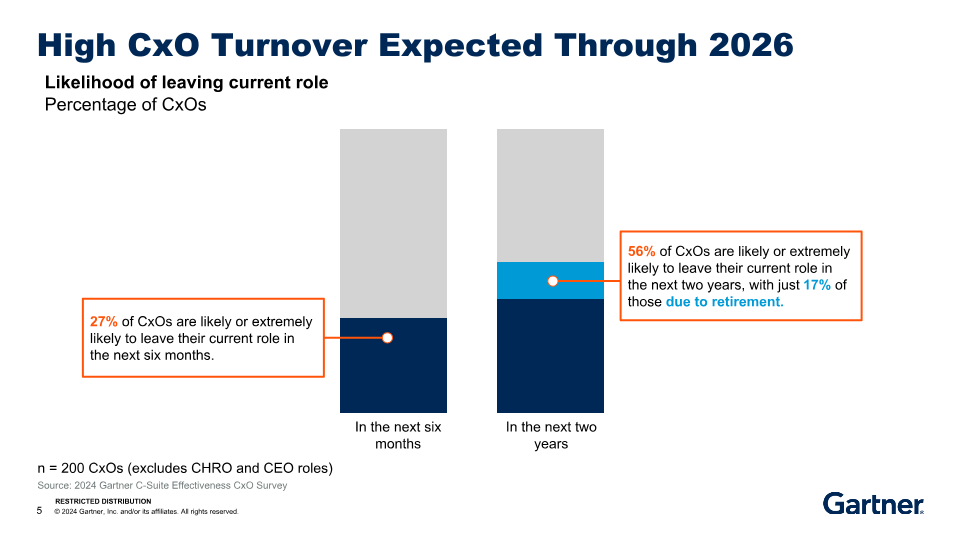A recent survey by Gartner showed that more than half (56%) of C-suite leaders (CxOs) could leave their jobs in the next two years. This survey only includes leaders who report directly to the CEO, not Human Resources leaders (CHROs). The survey, conducted in October 2024 with 200 CxOs, found that 27% of them are likely to leave their role within the next six months. The survey also saw that leaders are reporting an increase in workload compared to two years ago.
“Heightened executive turnover is a challenge for organizations as a less-tenured executive team typically means lower enterprise growth, which is the most important metric organizations rely on to track enterprise performance,” said Alexander Kirss, Senior Principal in the Gartner HR practice. “Compounding the issue, more tenured executives are more likely to leave within the next two years than executives who are newer in their roles.”
The survey found that 67% of leaders said they are asked to do more in their jobs.
58% said their company depends more on their function/department.
44% said they feel more stressed due to their job responsibilities.

The survey also found that companies where leaders stay for five years or more do better in making money and keeping customers happy, compared to companies where leaders stay for less than five years.
Despite these challenges, CHROs can help reduce CxO turnover by following ways
Act as Career Coaches
CHROs can help CxOs plan their careers and work with CEOs to develop their teams and plan for future leaders. They can connect CxOs to resources for learning and development based on their specific needs.
Building Trust and Relationships with CEOs
CHROs can help CxOs understand what the CEO wants and encourage open conversations with them. Trust between CxOs and the CEO is important, especially for sensitive topics. CHROs can share tips with their fellow leaders on how to build this trust.
Supporting Mental Health and Work-Life Balance
CHROs should promote mental health and help CxOs find ways to reduce stress and create a better work-life balance. They need to show good practices for well-being to their colleagues. Many CxOs find it hard to talk about their mental health, but by being open about their own efforts, CHROs can help reduce the stigma around these discussions.
Also Read: The Loneliness Epidemic in Urban Areas: A Mental Health Perspective




















